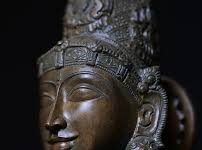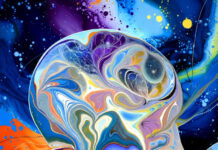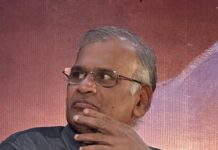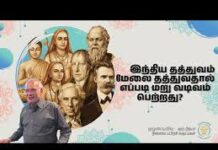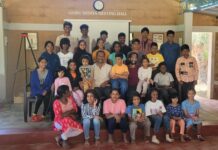
I was listening to a lecture on philosophy by a swami on YouTube. He used a lot of general and traditional allegories, like the serpent and the rope. Then he felt his talk was not modern enough, so he used a simple simile from empirical science. Actually, it was against basic science; a fifteen-year-old student may laugh at it.
This is happening often. These traditional scholars of philosophy used to spend many years in an ashram atmosphere and learn philosophy in a traditional way. On that syllabus, there is no literature at all, both traditional and modern. No science, no modern social sciences like psychology or sociology. They have no introduction to modern western philosophy either. So, they are fixed in a mode that is very archaic and stale. While confronting a modern-day audience, they stumble, so they use simple science as allegories, generally in the wrong way.
When Nitya Chaidanya Yati met his teacher, Nataraja Guru, he recommended his student Jean-Christophe, a novel written by Romain Rolland . “You have to read great western novels to understand western philosophy, and you have to learn modern western philosophy to connect Advaida with modern times.” Nataraja Guru asked Nitya Chaidanya Yati to watch and understand western paintings and music.
There is a lot of Vedantic literature in Sanskrit, Tamil, and English. Sometimes they are directly connected with Vedanta and written by great masters. It is unavoidable to learn Vedanta. But if we are trying to understand Vedanta from our contemporary lives or intending to converse with the modern world, modern literature is more important.
I would say modern literature is important to learn and discuss Vedanta in two ways. First, it gives us a lot of life moments, through those human situations, we can rediscover and affirm the vision of Vedanta again and again. It gives a lot of metaphors that could be used as Upamana Pramana (allegory) in Vedantic discourse. Second, modern aesthetic and linguistic theories of literature are very useful to understand Vedanta.
Just imagine if we can quote from War and Peace or One Hundred Years of Solitude to convey an idea of Vedanta, or use I.A. Richards ‘Reception Theory’ or Jacques Derrida’s ‘Deconstruction Theory’ to discuss a quote of Vedanta, how energetic and fresh the learning will be!



